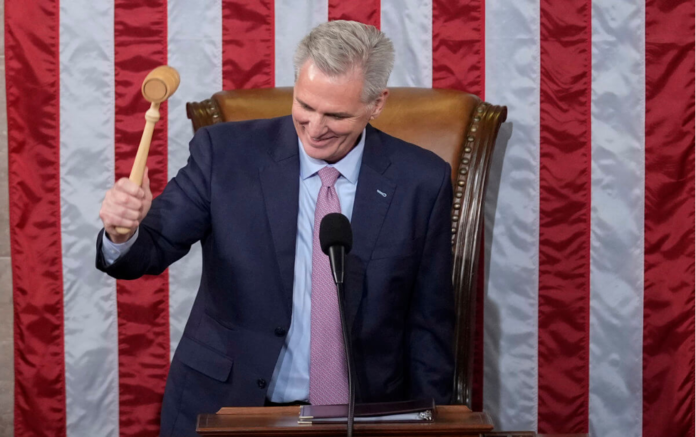By Greg Rivera
After four days and an unprecedented fifteen rounds of voting, Representative Kevin McCarthy of California won the election as House Speaker of the 118th Congress. In the early hours of January 7, McCarthy secured the gavel by agreeing to significant concessions with a group of hardline right-wing holdouts and weathering a dramatic late-night setback that underscored the limits of his power over the new Republican majority. Usually, when a political party wins control of the majority in the House of Representatives, it chooses its leader as the speaker. But this time, about 200 Republicans could not agree on whether Kevin McCarthy was conservative enough for them. As negotiations continued, McCarthy presented a deal to the holdouts from the Freedom Caucus and others that would give rank-and-file lawmakers more influence in drafting and passing legislation. At the core of the emerging agreement was a rule change that would allow a single lawmaker to call for the removal of the speaker. McCarthy had resisted reinstating this longstanding rule because, during the Obama administration, the provision had been held over former Speaker John A. Boehner’s head by members of the conservative group, who threatened to use it if he didn’t comply with their demands. After 14 rounds of voting, Representative Kevin McCarthy failed to secure the speakership. House Republicans then voted to continue the proceedings in a 15th and final round of balloting. McCarthy emerged victorious after Republicans Andy Biggs, Eli Crane of Arizona and Bob Good of Virginia voted “present,” which lowered the support threshold he needed to win. Many have argued that McCarthy’s concessions could radically reshape the next Congress. The belief is that the rule changes will substantially affect the mechanics of the House over the next two years and create the conditions for perpetual dysfunction in the chamber. Since 1789, there have been 127 speaker elections in the House of Representatives. A nominee needs 218 votes to become a speaker if all 435 members are present. Members of Congress can only swear in once there’s a speaker. Before this year, 14 elections required multiple ballots; 13 occurred before the Civil War, and only one occurred post-Civil War. Six of those 14 elections ended on the second or third ballot, but others took more than that–with one election finally ending after nearly two months and 133 rounds of voting. Now, in 2023, the House failed to elect a speaker on the first ballot for the first time since 1923.







